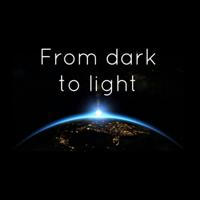
17 280
Suscriptores
-924 horas
-477 días
-18730 días
- Suscriptores
- Cobertura postal
- ER - ratio de compromiso
Carga de datos en curso...
Tasa de crecimiento de suscriptores
Carga de datos en curso...
Ancient Egypt and the Language
The Amazigh (Berber) languages have ancient roots in North Africa, with a history that dates back to the time of ancient Egypt. Although they are ancient and coexisted with the Egyptian language, they developed independently of each other.
ⴰⵣⵓⵔⵉⵎⵉ ⵙⴻⵍⵍⴰⵣⵉⵔ ⵏⵉ ⵜⵉⴼⵉⵏⴰⵖ, ⵓⵏⵙⴽⴻⵎ ⴰⴷⵔⴻⵏ ⵉⴷⴷⴰⵡⴻⵙ ⵉⵎⴻⵔⴰⵡⴻⵏ ⵉⵏ ⵡⵉⵔⴰ ⵉⵏⴼⵉⵙⵙⵓⵏ ⴰⵢⵏⵢⴰⵡⵏⴰ ⴰⵏⵎⵎⵓⵔⵉⵏ. ⵜⵉⴼⵉⵏⴰⵖ ⴰⵎⴳⵍⴰⴽ ⵉⵙ ⵓⵏⵏⵉⴷ ⴰⴽⵔⵓ ⵙⴻⵏⵏⴰⵢ ⵏⵏⵓⵏⵙⵙⵉⵎ. ⵜⵉⴼⵉⵏⴰⵖ ⴰⵎⴳⵍⴰⴽ ⵉⵙ ⴼⴰⵢⴰⵡⵓⴷ ⴰⵏⵉⵙⵙ ⵏⵉ ⵓⵎⵎⴰⵡⵉⵢⵉⵏ ⴰⵏⵉⴹⵓⵔⵉⵏ.
In the Amazigh (Berber) language, the term "Shleuh" (also spelled "Chleuh" or "Shluh") specifically refers to a subgroup of the Berber people from the Souss region in southern Morocco, including the High Atlas and Anti-Atlas mountains. The Shleuh people refer to themselves as "Ishelhiyen" (singular: "Ashelhi") in their Tamazight language.
Shleuh (or Chleuh): A term used to describe a specific Berber subgroup from the Souss region in Morocco.
Ishelhiyen: The Amazigh (Berber) term used by the Shleuh people to refer to themselves.
What’s particularly fascinating is the hidden evolution within the language. Originally, the word for Earth was "Aretz," as stated in the original Bible. Over time, it evolved to "Eretz." This subtle shift from A to E carries significant meaning, highlighting the linguistic evolution.
This change, E-A, marks their progress and serves as a perfect cornerstone in the study of language development.
It's the Shloykha paradox. In Russian, "Shloykha" has a negative connotation. However, in North Africa, it has a meaning that predates the Russian language.
It's an extremely ancient language.
For instance, the original word for Earth is "Eretz," which means "A-Runs" - signifying continuous movement from point A onwards, symbolizing an infinite journey forward.
In Akkadian, Earth is "Er-set," where the word "set" appears.
The word for King is "Sharu." "Sharu" translates to "They sang," highlighting how kings, like David, sang and played music.
Elige un Plan Diferente
Tu plan actual sólo permite el análisis de 5 canales. Para obtener más, elige otro plan.
